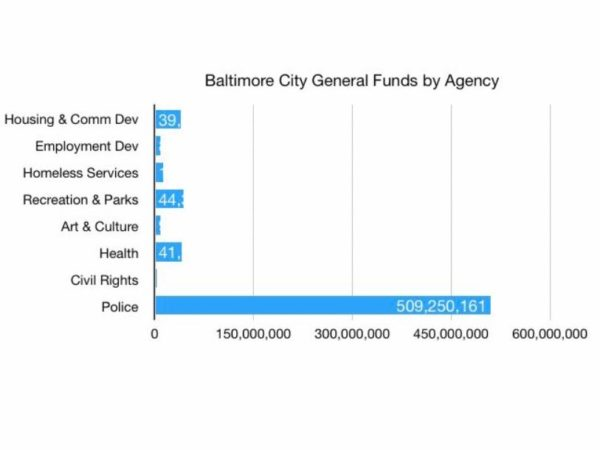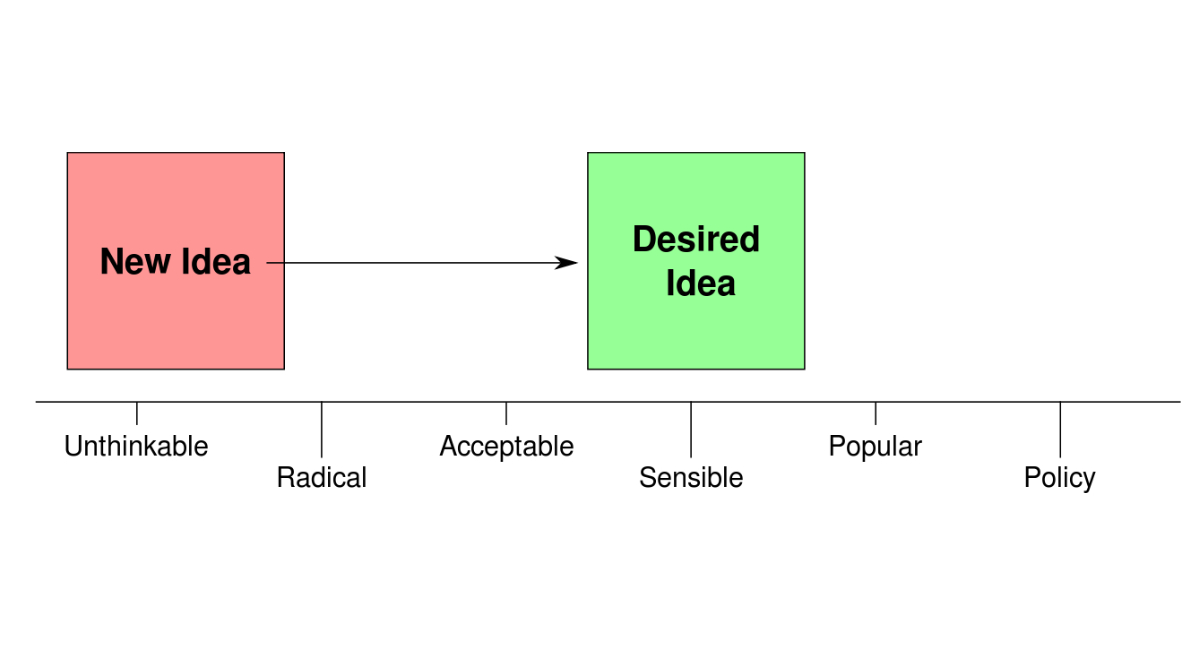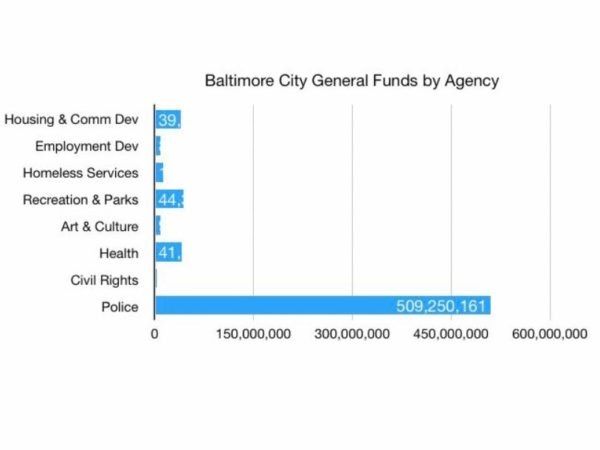Hey friends,
Welcome back the 5th edition of Making Connections, where we take a random walk down tech, fitness, product thinking, org design, nerd culture, persuasion, and behavior change.
There have been 11 days and nights of protests calling for racial justice and police/criminal justice reform in over 400 cities across the United States, and in dozens more across the world. Curfews have been set and defied, thousands have been arrested including journalists, and hundreds of acts of police brutality have been documented on video.
I normally hope to cover ideas in Making Connects that are less connected to current events. But we are living through unprecedented times and shit is extremely real. So let's talk about it.
1. 🔨 The Law of the Instrument
For the last few decades, every politician wanted to seem "tough on crime" and one of the most concrete ways to do that was to hire more cops and increase funding for police departments and jails. Police have increasingly obtained military caliber weapons like armored convoys, tear gas, targeted sound emitters, riot gear, etc. We're now facing the results of that long standing effort.
You've probably heard some version of the law of the instrument. Apparently it was first recorded by American philosopher Abraham Kaplan:
"I call it the law of the instrument, and it may be formulated as follows: Give a small boy a hammer, and he will find that everything he encounters needs pounding."
I like this version because it's not hard to see cops as small boys and hammers as guns and violence. The harassment and violence is a natural manifestation of our overemphasis on policing as a strategy for dealing with any societal issue.
2. 💥 When Aggressive Tactics Backfire
Based on a 5 year study of all 8,000 SWAT deployment in the state of Maryland (which is required to make that data public) one researcher found such deployments actually increase violent crime by 6.5%.
National debates over heavy-handed police tactics, including so-called “militarized” policing, are often framed as a trade-off between civil liberties and public safety ... I show that militarized “special weapons and tactics” (SWAT) teams are more often deployed in communities of color, and—contrary to claims by police administrators—provide no detectable benefits in terms of officer safety or violent crime reduction, on average. However, survey experiments suggest that seeing militarized police in news reports erodes opinion toward law enforcement. Taken together, these findings suggest that curtailing militarized policing may be in the interest of both police and citizens.
Full article in PNAS (full article)
The same principle is true on the other side though. After MLK was assassinated, there were 10 days of peaceful protests and violent protests (riots) across the country. A study looked at the 1968 election and found that areas that had violent protest (ie riots) were more likely to vote for Nixon (the conservative and "law and order" candidate.
Groups that are the object of state violence are able to get particularly sympathetic press—and a large amount of media coverage. But that is a very hard strategy to maintain, and what we often see is that, when protesters engage in violence, often in a very understandable response to state repression, that tends to work against their cause and interests, and mobilizes or becomes fodder for the opposition to grow its coalition.
How Violent Protest Change Politics (NewYorker.com)
3. 💵 How Much Money is Enough?
Here's the Baltimore City General Fund budget breakdown. Notice anything?

The Los Angeles PD annual budget is $1.8 billion. The NYPD's budget is even bigger: $5.5B (!!) Meanwhile, fines, fees, and asset foreiture by police are meaningful revenue sources, and often lead police to target black neighborhoods and people.
A thin safety net, an expansive security state: This is the American way. At all levels of government, the country spends roughly double on police, prisons, and courts what it spends on food stamps, welfare, and income supplements. At the federal level, it spends twice as much on the Pentagon as on assistance programs, and eight times as much on defense as on education.
If these figures from The Atlantic seem disproportionate to you, then you probably would agree that police departments need to have their funding reduced.
Some people have called for the wholesale elimination of police departments, which I read as an effort to expand the Overton Window and make larger scale cuts seem more reasonable. But there are fully articulated arguments for how policing could be replaced with other, more humane methods of crime prevention and social protection.

The more mainstream concept here is to redirect funding towards programs that actually eliminate poverty, homelessness, and crime by helping people rather than criminalizing them. What those programs are and how they work is a longer conversation and that's ok.
DTP is short and sweet as a slogan, and lines up with what we discussed in MC#003 around the Movement Action Plan and how the public first needs to start opposing the current policies (overpolicing) before it can start to support the new alternatives.
4. 👁 Who will watch the watchers?
We're in a very weird situation where normally protests are about something like Gay Rights, Climate Change, Worker's Strike, etc and the cops are there to ensure the protesters can exercise their First Amendment Rights. But in this case, the protest is literally about the police and the calls to defund the institution that pays their salaries. Anyone see where this can go wrong?
In The Atlantic (again): The use of force by police cant pacify protests responding to the use of force by police.
This isn’t a case where the cops can present themselves as a disinterested third party simply keeping the peace between the protesters and their targets. They are the targets, not only because police violence is what sparked the protests, but also because the reforms the protesters demand, from ending qualified immunity to abolishing police altogether, will affect those officers.
When the police are criticized for enacting violence on angry or aggressive protesters, a common response is "Well what do you expect someone to do if they're in your face like that?"
The correct response is "de-escalate" something that teachers, nurses, and mental health professionals do all the time.
But whether it's a combination of lack of training, a culture of testosterone and aggression, a million Law and Order-style cop shows and movies where a rogue cop takes justice into his own hands, we seem to accept that using force to get the "bad guys" is appropriate.
It made me think of the line "Who will watch the watcher".), from Roman poet Juvenal, which apparently first was made in reference to ensuring to martial infidelity. Ultimately, some combination of the journalists, citizens clamoring for change, and new political leaders has to take that role.
A member of George HW Bush's campaign and Justice Dept says that (contrary to the research from earlier in "When Aggressive Tactics Backfire") the riots were part of Bush's downfall and perhaps this will hold true for Trump.
Overall, despite some of the atrocious acts that have come out of the protests, I'm encouraged by how many people have come out, the early concessions they've won, and how a movement without a central leader can still thrive.
And that’s it for edition #005 for Making Connections. Thanks for joining this band of curious readers. Would love to hear your thoughts (just reply or click the comment button to start a conversation!)
Yours in solidarity,
Jason

